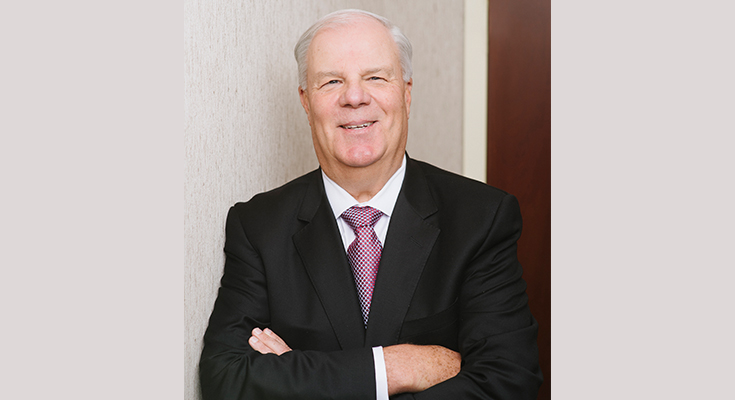
The past year has been like none other in our lifetime. And when I look back at the day in December 2019 when I became President of this College, it is stunning to consider the changes we have all experienced.
As we wage this fierce battle with COVID-19, I continue to draw so much inspiration from my peers in the trenches. Your commitment and your courage in caring for your patients, even as it takes such a toll in your own lives, makes me proud to belong to our profession.
The pandemic has given rise to opportunities as we figure out the best work arounds. For example, the rise of virtual care may be one legacy of COVID-19. As one physician remarked recently in these pages, “when people look back on advances in health care technology, this will be a watershed year.” To that end, I recently had the opportunity to host the College’s first Virtual Care symposium, which brought together patients and physicians for a dynamic discussion on this evolving issue. I would like to thank all participants for providing so much food for thought. I’m pleased that such a productive discussion will help inform our work in updating our Telemedicine policy.
At the College, work has continued, in fact without hardly missing a beat. We moved all our meetings and hearings online — including Council — and made it business as usual.
“As we wage this fierce battle with COVID-19, I continue to draw so much inspiration from my peers in the trenches.”
And in fact, it was a virtual collaboration with an advisory group made up of patients and caregivers that led to the creation of one of this year’s proudest accomplishments.
During the development of the CPSO’s four Continuity of Care policies, we made the commitment to recognize, capture, and support the important and growing role patients play in facilitating continuity of care by developing a resource that would help engage them and complement the efforts of physicians.
The result is the Continuity of Care Guide for Patients and Caregivers, which was co-designed by the Citizens Advisory Group (CAG). It is a practical, concise resource that lays out the actions that patients and caregivers can take to help prevent breakdowns in continuity of care.
CAG, a group of patients and caregivers who provide advice to many of Ontario’s health regulators on issues and initiatives, reviewed each section of the guide in detail, to ensure it reflected the direction its members had provided to the College, and determine whether the information and guidance resonated with them and would be helpful for other patients and caregivers. After being exuberantly endorsed, the guide is now available on our website, where it will be translated into several languages. I urge you to tell your patients about the guide and use it as an opportunity to let them know that you consider them a partner in their health care, with the shared goal of ensuring they get the right care at the right time.
When I began this year, one of my goals was to reach out to marginalized populations for their insights as to how the College could better serve their needs. COVID-19 made it impossible to meet across the table, as I had initially hoped, but we have made it a priority to shine a light, in these pages, on how systemic bias in health care has created alarming health disparities. In this issue, we continue our series by speaking to five Indigenous doctors about how colonial ideologies have created so much deep damage to the health and well-being of Indigenous peoples.
Given the depth and extent of the trauma imposed, one might wonder how any of us can even begin to address the ingrained pain carried through generations.
I liked the advice given by Dr. Chase McMurren, who described the importance of possessing cultural humility — know that you don’t know.
“It starts with ourselves,” he said. “An awareness of what we’re ignorant about, and that our view isn’t complete. Genuine curiosity goes a long way. We have a duty of curiosity.”
I urge you to read more about what these doctors have to say and the best way forward.
In closing, I’d like to thank my Council and Executive Committee colleagues for supporting my leadership and for continuing to advance our strategic plan under such challenging circumstances. I am also grateful for the tireless work performed by the talented and hardworking staff of the College. It has also been an immense privilege to work alongside our fearless Registrar, Dr. Nancy Whitmore. I have learned so much from all of you.
Lastly, I would like to end by wishing the best for the College’s new President, Dr. Judith Plante. I am happy to be passing the torch to another family doctor, who I know shares the same passion for serving the public interest.





